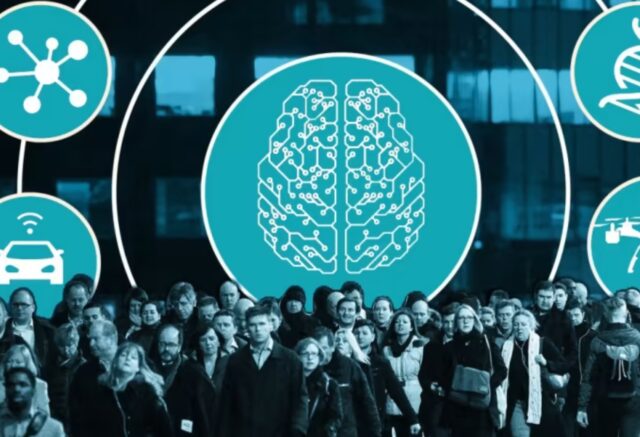
AI is transforming the recruitment industry, empowering recruitment agencies with advanced tools and capabilities to streamline processes, improve candidate selection, and enhance overall efficiency. Here are several ways AI is impacting recruitment agencies:
Candidate Sourcing and Screening: AI algorithms can efficiently scan and analyse a vast number of resumes and applications to identify top candidates based on predefined criteria. By using natural language processing and machine learning, AI systems can match candidate skills, qualifications, and experience with job requirements, saving recruiters significant time and effort in the initial screening process.

Automated Job Matching: AI-powered systems can analyse job descriptions and candidate profiles to identify the best fit. These systems can consider factors such as skills, experience, education, and cultural fit to generate a list of the most suitable candidates for a particular role. This automation speeds up the matching process and helps recruiters focus on the most promising candidates.
Improved Talent Pool Management: AI enables recruitment agencies to build and maintain a robust talent pool. AI systems can capture candidate data from various sources, including resumes, social media profiles, and online platforms. By using machine learning algorithms, agencies can categorize, and segment candidates based on their skills, experience, and preferences, making it easier to find suitable candidates for future job openings.
Enhanced Candidate Experience: AI can personalize the candidate experience throughout the recruitment process. Chatbots and virtual assistants powered by AI can interact with candidates, answer their questions, and provide updates on their application status. These systems can also offer personalized recommendations for career development and job opportunities based on the candidate’s profile and interests.

Bias Reduction and Diversity Hiring: AI can help reduce unconscious bias in the recruitment process. By focusing on objective criteria and removing demographic information from candidate profiles, AI systems can promote fair and unbiased candidate evaluation. This promotes diversity and inclusion by ensuring that candidates are assessed based on their qualifications and merits, rather than personal characteristics.
Predictive Analytics for Hiring: AI enables recruitment agencies to leverage predictive analytics to make data-driven hiring decisions. By analysing historical data, AI systems can identify patterns and correlations that predict the success of candidates in specific roles. This helps agencies identify candidates with the highest potential for success and make informed hiring decisions.
Skill Development and Training: AI can assist in identifying skill gaps and recommending training programs for candidates and employees. By analysing data on job requirements and individual skills, AI systems can provide personalized suggestions for skill development, helping candidates and employees stay competitive and relevant in their fields.
Streamlined Administrative Tasks: AI can automate various administrative tasks associated with recruitment, such as scheduling interviews, sending reminders, and collecting feedback. This automation frees up recruiters’ time, allowing them to focus on building relationships with candidates and clients.
AI (Artificial Intelligence) is revolutionizing customer service by enhancing efficiency, personalisation, and overall customer experience. Here are several ways in which AI is changing customer service for the better:

Improved Response Times: AI-powered chatbots and virtual assistants can instantly respond to customer queries, 24/7. These intelligent systems can handle a large volume of inquiries simultaneously, reducing wait times and providing instant assistance to customers. Quick responses lead to increased customer satisfaction and a positive perception of the company’s responsiveness.
Personalized Customer Interactions: AI enables businesses to gather and analyse vast amounts of customer data, allowing for personalized interactions. By leveraging machine learning algorithms, AI systems can understand customer preferences, purchase history, and behaviour patterns. This information enables companies to offer tailored product recommendations, personalized offers, and customized solutions, enhancing the overall customer experience.
Enhanced Self-Service Options: AI-powered self-service platforms empower customers to find answers and solutions on their own, without the need to contact customer support. Natural language processing (NLP) algorithms enable AI systems to understand customer inquiries accurately and provide relevant self-service options. This reduces the reliance on human agents for routine queries, freeing up their time to handle more complex issues.
Efficient Call Routing: AI-powered systems can analyse customer inquiries and intelligently route calls to the appropriate department or agent. By using speech recognition and natural language understanding, AI can determine the nature of the customer’s request and connect them with the most suitable representative. This ensures faster resolution times and reduces the need for customers to be transferred multiple times.
Sentiment Analysis and Customer Insights: AI can analyse customer interactions, such as chats, emails, or social media conversations, to gauge customer sentiment and extract valuable insights. Sentiment analysis algorithms can identify positive or negative emotions expressed by customers, helping companies understand customer satisfaction levels and identify areas for improvement. This feedback enables organizations to address issues proactively and deliver better customer experiences.

Proactive Customer Support: AI can detect patterns and anticipate customer needs or potential problems. By analysing customer data and behaviour, AI systems can identify trends or anomalies that might signal upcoming issues. This allows companies to proactively reach out to customers, offer assistance, or provide relevant information, reducing the likelihood of customer dissatisfaction and churn.
Continuous Learning and Improvement: AI systems can learn from every customer interaction, improving their performance over time. By analysing past interactions, AI systems can identify successful solutions, optimize responses, and refine their knowledge base. This continuous learning process helps AI systems become increasingly accurate, reliable, and capable of providing better customer service.
While AI offers numerous benefits to customer service, it’s important to strike a balance between automated solutions and human touch. Many customer interactions still require the empathy, creativity, and problem-solving abilities of human agents. Combining the strengths of AI with human capabilities can create a seamless customer service experience that maximizes efficiency and personalization.
While AI brings numerous benefits to recruitment agencies, it’s important to maintain a human touch in the process. Building strong relationships, understanding candidates’ motivations, and assessing cultural fit often require human judgment and intuition. The combination of AI technology and human expertise can create a powerful synergy in the recruitment industry.
The introduction of AI in the recruiting industry is expected to bring significant changes to the nature of recruiting jobs, but it is unlikely to completely destroy them. Instead, AI is likely to reshape the roles and responsibilities of recruiters. Here’s a closer look at the impact AI could have:

Automation of Routine Tasks: AI can automate many repetitive and time-consuming tasks in the recruitment process, such as resume screening, candidate sourcing, and interview scheduling. This automation can free up recruiters’ time, allowing them to focus on more strategic and value-added activities.
Improved Efficiency: AI-powered tools can analyse vast amounts of candidate data and provide more accurate and efficient matches between job requirements and candidate profiles. Recruiters can leverage these tools to speed up the screening and selection process, making their work more efficient.
Enhanced Candidate Experience: AI can help create a more personalized and engaging candidate experience. Chatbots and virtual assistants can provide real-time support, answer candidate queries, and guide them through the application process. This improves candidate satisfaction and strengthens the agency’s employer brand.
Augmented Decision-Making: AI can provide recruiters with valuable data and insights to make more informed hiring decisions. AI-powered analytics can identify patterns and correlations in candidate data, helping recruiters predict candidate success and make better-informed decisions.

Bias Reduction and Diversity Promotion: AI has the potential to reduce unconscious bias in the recruiting process by focusing on objective criteria and removing demographic information from candidate profiles. This can promote diversity and inclusion in hiring practices.
New Skill Requirements: With the adoption of AI, recruiters will need to develop new skills to effectively leverage AI-powered tools and technologies. This may include understanding how to interpret and utilize AI-generated insights, managing AI systems, and integrating AI into recruitment strategies.
Relationship Building and Human Touch: While AI can automate certain tasks, the human touch and relationship-building aspect of recruiting remain essential. Recruiters can focus on building strong relationships with candidates, understanding their career goals, providing guidance, and assessing cultural fit, which are areas where human judgment and intuition play a significant role.
In summary, AI is likely to transform the recruiting industry by automating routine tasks, improving efficiency, and enhancing the candidate experience. While some aspects of the traditional recruiting role may evolve or become automated, the need for human expertise, relationship building, and strategic decision-making will continue to be important. Recruiters can adapt and leverage AI as a tool to enhance their capabilities and focus on higher-value activities, ultimately shaping the future of recruitment jobs rather than eliminating them.
FD Capital are a leader in the UK FD and CFO recruitment space and are embracing AI to improve their customer experience.









